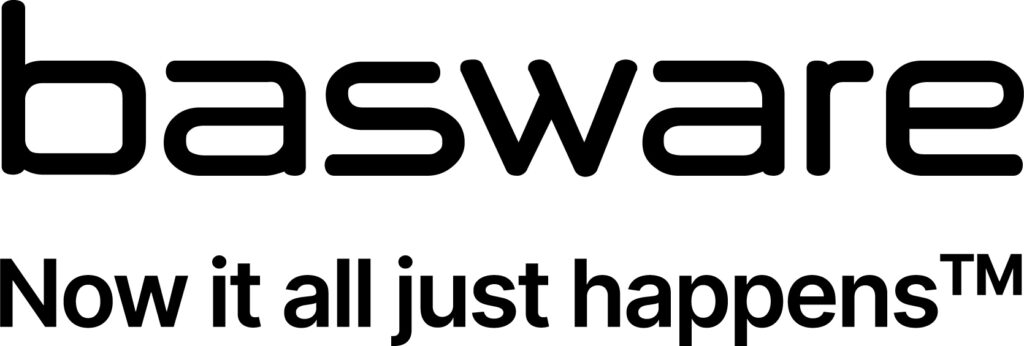
- Author: Jessica Mudditt
- Posted: August 28, 2023
The Future of Accounts Payable
Electronic invoicing solution provider Basware enables finance leaders in global enterprises to automate labour-intensive invoice processes and extract deeper insights from this valuable source of data. Basware’s APAC Vice President Michael Pyliotis sat down with CFO Magazine’s Jessica Mudditt to discuss how finance leaders in global enterprises can finally automate their complex, labor-intensive invoice processes and stay compliant with regulatory change.
When an accounts payable (AP) process is automated, the reduction in inefficient processes results in a range of tangible benefits that include reduced costs, increased productivity, as well as improved visibility across all of the invoice data.
However, there is another more strategic change that occurs that is not just about the business benefits, but how finance teams operate, says Basware APAC Vice President, Michael Pyliotis.
“It essentially changes the accounts payable function from being a transaction-heavy processing environment, with teams of people tapping away on keyboards and entering data into systems, to one that is focused on reporting and compliance,” he says. “The use of technology is creating next-generation AP experts who can predict processing bottlenecks before they occur.”
Solving common pain points
For many years, high-performing AP teams have focused on how to process invoices more quickly. However, with ever-increasing invoice volumes, the demand for automation has grown in tandem.
“Finance transformation is a key priority for CFOs as business environments become increasingly complex,” says Pyliotis.
“The demand for automation has grown not just from higher volumes of invoices being produced, which is a common pain point faced by CFOs today, but seeing that manual and inefficient processes can’t scale effectively.”
The advent of touchless invoice processing by Basware means that every possible exception across the entire accounts payable process is automated, with only highly exceptional deviations needing to be dealt with manually. As a result, the AP team’s focus can shift to a new level of efficiency.
“Rather than dealing with every invoice, the AP team can consider bigger questions like, ‘Why do I need to touch this invoice? And what can I do with the tools that I have to correct this exception and ensure that this doesn’t happen next month?’”
In the past, deviations have been a recurring source of additional costs for many organisations. For example, if a company has purchased a range of products on the proviso that the invoice will be for a certain amount, but it turns out to be something different, members of the finance team will need to get involved to rectify it.
“Typically, that is an exception that needs to be handled by either the business or the AP team – or both,” says Pyliotis. “In some organisations, the invoice might be passed around three or four different sets of hands before the issue is solved.”
By the time the issue has been reworked to obtain all the right approvals in accordance with the company’s delegation of authority and other controls, it could cost upwards of $25 to $30 to process a single invoice.
“In isolation that doesn’t sound like a lot, but if you are processing over 400,000 invoices a year like some of our customers do, that soon ramps up,” says Pyliotis. “Basware can bring that down to a couple of dollars. From a CFO’s perspective, this not only frees up time and resource, but by removing these costs from the business, it can materially affect the bottom line.”
Basware is now going one step further to predict exceptions before they occur. Its technology uses AI to predict a specific deviation for a supplier or a particular type of purchase. Over time, by identifying and automating all possible exceptions and deviations, it creates a platform for continuous improvement.
A trustworthy AP automation expert
This year, Basware once again received the highest ranking for accounts payable invoice automation (APIA) in the Gartner 2022 Critical Capabilities for Procure-to-Pay Suites Report. It was also recognised as Customers’ Choice in the 2023 Gartner Peer Insights ‘Voice of the Customer’: Procure-to-Pay (P2P) suites, as voted by end users of its product from enterprise customers.
Basware’s eProcurement solution has also been described by research firm Forrester as “a leading choice for CPOs and CFOs who hope to achieve 90% or more process automation across their P2P spend, including simple and complex categories. It excels at automating capture and processing of many different types of invoices, including milestone, time, and periodic billing.”
The Forrester group ranks Basware number one for invoice processing, global programs and product strategy.
Embracing change and scaling up
Despite being recognised as a market leader for 35 years and winning many awards, Pyliotis says that it is not always easy to convince teams that new processes and procedures are worth embracing.
“As business environments become increasingly complex, finance transformation is a key priority for CFOs,” notes Pyliotis. “Unfortunately, I still hear the refrain of ‘But we’ve always done it this way,’ too often,” he says.
As he explains, most of the traditional approaches to accounts payable hinder efficiency, accuracy, compliance and cost effectiveness.
“Allocating resources to a manual process may have been a quick and convenient way to deal with increasing volumes of invoices in the past, but it is no longer sustainable or cost effective,” says Pyliotis.
“Businesses simply can’t scale their operations that way anymore, especially at a time where profitability and margins are top of mind for all our finance leaders, with continued pressure to find new ways to stay productive and to make the most with the resources they have.”
Pyliotis emphasizes that when CFOs are considering business improvement initiatives, it’s vital to use the most appropriate technology platform to achieve the top benefits. Often, when undertaking large transformation projects, invoice automation can take a back seat. The alternative, however, is to incorporate this incredibly valuable source of financial data before transitioning to another system. Since Basware’s open API makes it one of the most adaptable invoice automation solutions, starting a transformation project with e-invoicing, rather than lumping it on at the end, makes good business sense.
Further, CFOs can leverage Basware’s technologies to enhance decision-making, forecasting and strategic planning by using the highly valuable Business Insights tool. It leverages the company’s own data to provide recommendations on how to optimise their business practices.
“If you’re a CFO who is keen to transform the AP function, you need to look at whether you are truly utilising the best-in-class AP solutions out there today. Many CFOs think that they are – and their AP automation process may in fact be quite mature,” says Pyliotis.
“However, there’s a noticeable gap between where most companies are, and what they’re missing. I would encourage you to take a closer look at whether you are obtaining a whole range of benefits, including visibility to the business and cost savings.”
Basware can conduct an assessment to identify potential areas of improvements, and how this will help the bottom line. For more information, visit https://www.basware.com/en-en/solutions/ap-automation/









